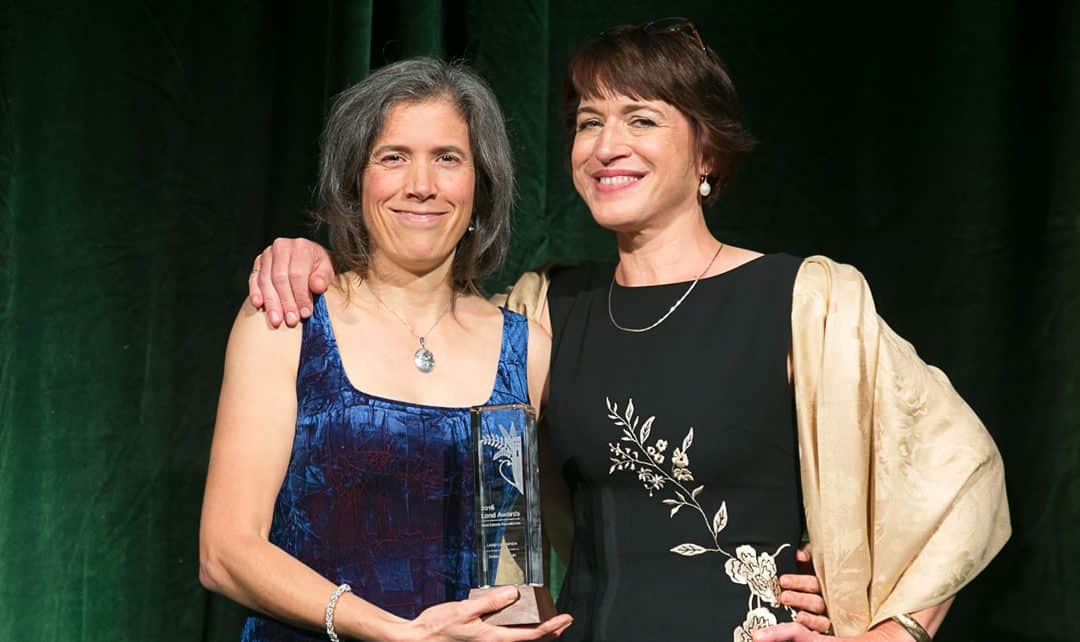Real Estate Foundation British Columbia’s Land Awards, which recognize sustainability in real estate and land use, were recently presented in Vancouver. Many of this year’s awards recognized First Nations values in land use and planning.
Deborah Curran, an environmental lawyer and educator, was named the 2016 Land Champion. The award recognizes an individual who has made significant contributions to advance sustainable land use in B.C. The awards are given out every two years.
Curran, who is affiliated with the Hakai Institute and the University of Victoria, is a national leader in law reform, applied research and education, says the foundation. The Hakai Institute is a scientific research institution advancing long-term research at remote locations on the B.C. coast. Through her work as co-founder of Smart Growth B.C., acting executive director of the Environmental Law Centre at the University of Victoria and as a practicing lawyer, Curran is considered a thought leader on sustainable-built environments and freshwater governance, says the foundation. Her current work, in partnership with the POLIS Project on Ecological Governance, matches indigenous water law with the framework of the new Water Sustainability Act.
“Deborah’s work is innovative, cutting-edge and highly practical,” says Jack Wong, REFBC CEO. “Over the course of her career, she’s helped to create legal tools like green bylaws and sample policies that can be used by local governments. Her work on watershed governance and on smart growth has informed decision makers and changed the way we think about development and sustainability.”

Presenting the Non-Profit Sector Award, from left: Robert Goertz, director, REFBC; Tara Ammerlaan, project manager, Fair Mining Collaborative; Glenn Grande, program staff, Fair Mining Collaborative; and Mandy Hansen, director, REFBC.
The REFBC held a gala night in October honouring the finalists and award winners for their projects that demonstrate leadership, innovation and collaboration in sustainable land use. The winners were chosen from finalists in the private sector, non-profit sector and public sector categories.
The Beer Farm (Persephone Brewing Company) won the private sector award. It’s an 11-acre farm at Gibsons on the B.C. coast. The brewing company uses B.C. grains, promotes agri-tourism, grows its own hops and provides employment for challenged individuals. It combines food, beer and tourism to help the local economy and sustain the operation.
Other finalists in the private sector category were the City of Coquitlam district energy system using B.C.’s derived technology known as Thermenex; and RED Talks (Wesgroup Properties).
In the public sector, the winner was Squamish-Lillooet Regional District Electoral Area B, District of Lillooet and St’át’imc Agricultural Plan: an inclusive regional agricultural plan. The agricultural plan was directed and co-ordinated by the Squamish-Lillooet Regional District with the involvement and partnership of the District of Lillooet and the St’at’imc Nation, as it pertains to an area encompassed within the Northern St’at’imc Territory. Adopted in 2014, it also led to the establishment of a non-profit organization that would focus on marketing and branding. The plan’s objective is preserving and utilizing the agricultural land within the area.
Other finalists for the public sector award were the Indigenous Community Planning Program (University of B.C. School of Community and Regional Planning) and the User Network for Insect Biology in the Urban Garden (UNIBUG), citizen science at Douglas College.
Taking the award for the non-profit sector was Fair Mining Collaborative’s Moving Toward Reconciliation, which involves resource, capacity building for First Nations communities affected by resource development. The initiative is to ensure that aboriginal communities benefited from resource exploitation in their area and were involved in decision making.
Other finalists were Kwayatsut (affordable housing, youth resource centre) operated by the Vancouver Native Housing Society; The Post at 750 and CBC Vancouver Community Spaces, a joint venture by 110 Arts Cooperative and CBC Vancouver providing community space for arts organizations; and the Rental Housing Index, which was developed by the B.C. Non-Profit Housing Association and tracks rentals and their affordability across Canada.














